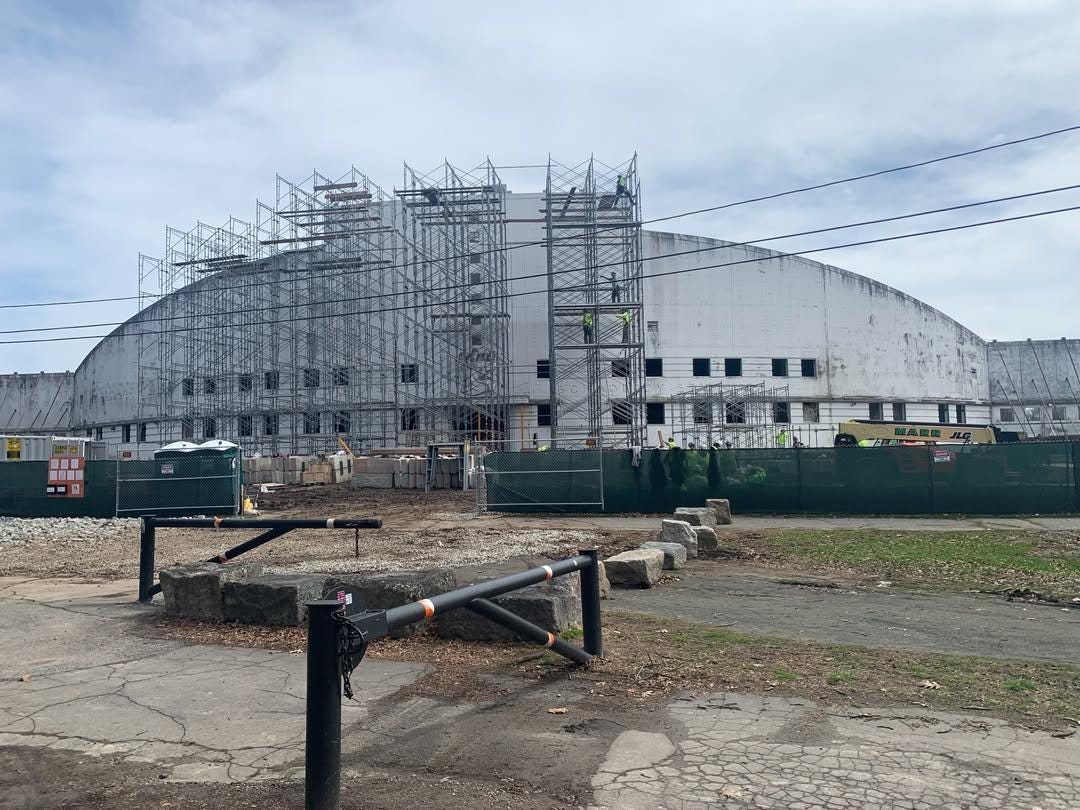Plaintiffs in White Stadium Lawsuit File Appeal
Plaintiffs in the White Stadium lawsuit submitted a notice of appeal last Friday, a month after a Superior Court judge ruled in favor of the stadium renovation.
Plaintiffs in the White Stadium lawsuit submitted a notice of appeal last Friday, a month after a Superior Court judge ruled in favor of the stadium renovation.
The Emerald Necklace Conservancy and a group of local advocates, who initially sued the City of Boston and Boston Legacy FC, say the court decision left several questions unanswered. The unresolved issues involve the impacts the renovation and future stadium use will have on surrounding parkland, the illegal sale and consumption of alcohol in a school facility, and the alleged violation of the George Robert White Trust.
“We are optimistic that the courts will ultimately uphold the fundamental constitutional protections that all public recreation land in Massachusetts depends on, and protect Franklin Park and a public stadium for generations to come,” said Karen Mauney-Brodek, president of the ENC. “And we’re committed to partnering with the city, and anyone else, to make a fully public renovated White Stadium a reality.”
Judge Matthew Nestor determined in April that White Stadium was not subject to Article 97, a public parkland protection act, therefore allowing the public-private renovation and Boston Legacy to lease the stadium.
The first two counts of the original lawsuit argued that the lease and private use of the parcel violated the terms of the trust. The defendants believed those arguments lacked standing, and moved to dismiss the counts prior to the start of the trial, which the court allowed.
The plaintiffs raised the issue of alcohol sales during the March trial, but the judge did not permit them to go on as the main topic at the time was land protection.
The plaintiffs also believe the project will result in a change in use of Franklin Park, the land surrounding the stadium that is subject to Article 97, which would require a two-thirds vote of the state legislature as well as other state reviews. Installing utilities through the park and using park roads for commercial purposes would constitute a change in use, they say.
BLFC expressed disappointment in the decision to appeal.
“Multiple polls and hundreds of meetings with the community have shown a resounding majority of residents support this historic investment for Boston Public Schools,” said Boston Legacy FC. “We remain focused on advancing the work that is well underway as we prepare for the 2026 NWSL season.”
Demolition has been underway since January, and certain logistics continue to be reviewed.
The Boston Parks Commission approved the latest round of design updates in April, which included signage, benches, and lighting that would be placed on the stadium’s exterior and on certain pathways leading to the stadium. Consultants also detailed proposed landscaping designs. The project accounts for planting 70 trees along the perimeter of the stadium, as well as adding biodiversity to the surrounding areas.




I still do not understand who would plan to build an under-sized stadium in a place with little to no room for training facilities/grounds and no on-site parking.
I love that last line: “contribute to biodiversity.” Yeah, sure. That’s exactly what that huge amount of construction will do for that parkland right, folks?
The judge and the developers may have a majority of the people on their side, but that does mean they are not liars.